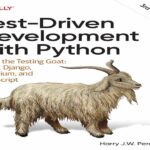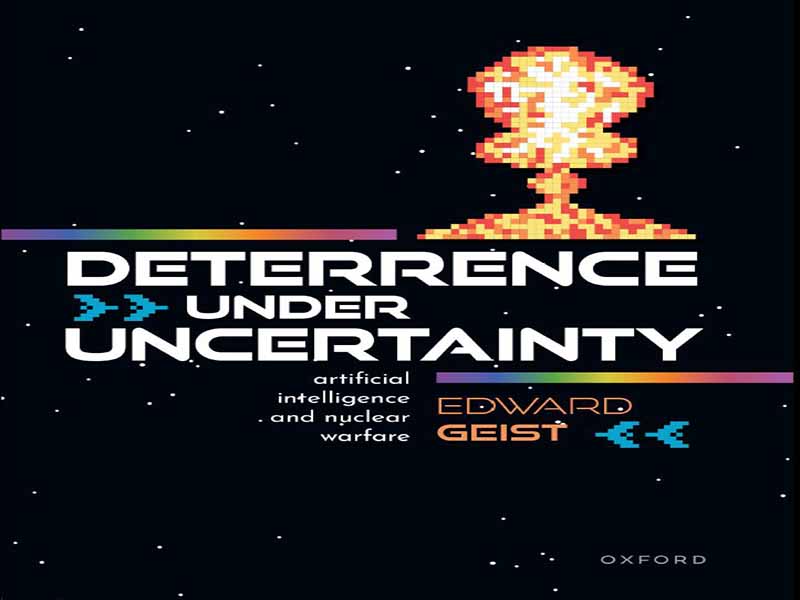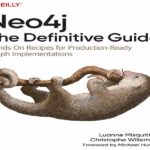- عنوان مجله: Deterrence under Uncertainty -Artificial Intelligence and Nuclear Warfare
- نویسنده: Edward Geist
- حوزه: بازدارندگی
- سال انتشار: 2025
- تعداد صفحه: 282
- زبان اصلی: انگلیسی
- نوع فایل: pdf
- حجم فایل: 12.8 مگابایت
با خواندن مطالبی که در چند سال گذشته در این زمینه منتشر شده است، ممکن است این تصور به شما دست دهد که مشکل مکانیابی و هدفگیری زیردریاییهای حامل موشک و پرتابگرهای موشک متحرک از قبل حل شده است. پاول براکن معتقد است که فناوری سایبری، شکار موشکهای متحرک را سریعتر، ارزانتر و بهتر میکند. این امر ثبات هستهای را بر هم میزند زیرا در را برای حملات دقیق با سلاحهای متعارف یا هستهای به سیستمهای بازدارنده ستون فقرات عصر دوم هستهای، یعنی موشکهای متحرک، باز میکند.¹ کیر لیبر و داریل پرس موافقند که «در رقابت مداوم «پنهانکاران» و «جستجوگران» که توسط زیردریاییهای موشک بالستیک، موشکهای زمینی متحرک و نیروهایی که به دنبال ردیابی آنها هستند، انجام میشود، کار پنهانکاران دشوارتر از همیشه میشود.»2 برندن ریتنهاوس گرین و آستین لانگ موافقند: «ایالات متحده منابع عظیمی را در قابلیتهای اطلاعاتی برای اولین حمله، از جمله نوآوریهای موفق در ردیابی زیردریاییها و موشکهای متحرک، سرمایهگذاری کرده است.»3 پیشبینیهایی از این دست چیز جدیدی نیستند. در واقع، بیش از یک قرن است که پیشبینیهای مشابهی به طور منظم انجام میشود. با این حال، علیرغم تمام پیشرفتهای تکنولوژیکی که در طول این مدت رخ داده است، به نظر میرسد آگاهی غالب در میدان نبرد به نوعی همیشه دور از دسترس است. امروزه، کارشناسان میگویند هوش مصنوعی فناوریای است که سرانجام این رویا را به واقعیت تبدیل خواهد کرد. آیا این بار متفاوت است؟ این کتاب استدلال میکند که پاسخ “نه” است زیرا دو مورد از عوامل ضروری آگاهی موقعیتی، یعنی ترکیب اطلاعات و استدلال در شرایط عدم قطعیت، ذاتاً دشوار هستند. این وظایف نه تنها از نظر محاسباتی چالش برانگیز هستند، بلکه از نظر معرفتشناختی و هستیشناختی نیز تحمیل کننده هستند. به زبان ساده، این بدان معناست که حتی اگر سوال درست را برای پرسیدن از کامپیوتر میدانستیم، آنقدر طول میکشید تا کامپیوتر پاسخ درست را پیدا کند که حتی با یک کامپیوتر قدرتمند دلخواه، اساساً تا ابد منتظر میماندیم. با این حال، مشکل بزرگتر این است که ما نمیتوانیم مطمئن باشیم که سوال درست را مطرح میکنیم، بنابراین حتی اگر کامپیوتر پاسخ صحیحی برای سوالی که ما پرسیدیم پیدا کند، ممکن است آن چیزی نباشد که ما نیاز داشتیم. دشمنان میتوانند و احتمالاً از این دشواری برای خنثی کردن “یابندگان” احتمالی با استفاده از اشکال پیچیدهتر فریب نظامی سوءاستفاده خواهند کرد.
Read what has been published on the subject in the past few years, and you might get the impression that the problem of locating and targeting missilecarrying submarines and mobile missile launchers has already been solved. Paul Bracken suggests that Cyber technology is making the hunt for mobile missiles faster, cheaper, and better. This upsets nuclear stability because it opens the door to accurate strikes with conventional or nuclear weapons on the backbone deterrent systems of the second nuclear age, namely, mobile missiles.¹ Keir Lieber and Daryl Press agree that “In the ongoing competition waged by ‘hiders’ and ‘seekers’ waged by ballistic missile submarines, mobile landbased missiles, and the forces that seek to track them, the hider’s job is growing more difficult than ever before.”2 Brendan Rittenhouse Green and Austin Long concur: “The United States has invested massive resources into intelligence capabilities for a first strike, including successful innovation in tracking submarines and mobile missiles.”3 Predictions of this sort are nothing new. In fact, analogous prognostications have been made regularly for more than a century. Yet despite all the technological progress that has occurred over that time, dominant battlefield awareness somehow always seems to be just out of reach. Today, pundits suggest that artificial intelligence is the technology that will finally make this dream a reality. Is this time different? This book argues that the answer is “no” because two of the necessary enablers of situational awareness, information fusion and reasoning under uncertainty, are intrinsically hard. These tasks are not just computationally challenging, they are epistemologically and ontologically imposing as well. In plain language, this means that even if we knew the right question to ask the computer, it would take so long for the computer to find the right answer that we could be waiting essentially forever even with an arbitrarily powerful computer. Yet the bigger problem is that we cannot be sure we are posing the right question, so even if the computer finds a correct answer to the question we asked, it might not be what we needed. Adversaries can, and probably will, exploit this difficulty to thwart would-be “finders” using increasingly elaborate forms of military deception.
این کتاب را میتوانید از لینک زیر بصورت رایگان دانلود کنید:
Download: Deterrence under Uncertainty -Artificial Intelligence and Nuclear Warfare





































نظرات کاربران